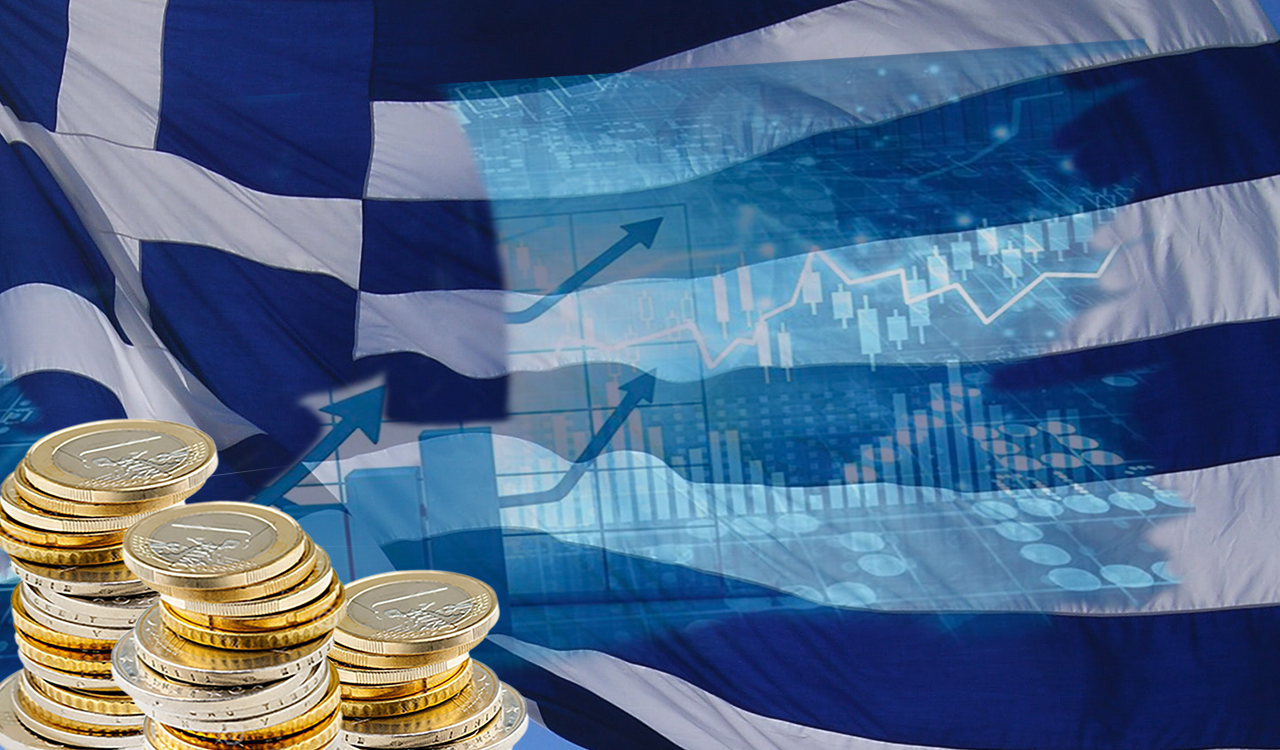
Swiss bank UBS proceeded to an upward revision of the growth for Greece to 5.7% this year, from 4% which was the previous forecast, mainly as a result of the strong impact of tourism, also foreseeing that in 2023 the growth rate of the GDP will reach 4% (from 4.7% which was the previous estimate).
The upgrade, however, reflects overall the strong GDP of the first quarter (+2.3% on a quarterly basis and +7.0% on an annual basis) which creates a carry-over of 450 basis points for further growth, as well as the tourism revenues expected to reach 20 billion euros this year against the initial forecast of 15 billion euros (from 10.5 billion euros last year), including the sector’s positive impact on job creation.
Steady progress in the second half as well
At the same time, there are indications of a stable course of growth during the second half as well (+6.6% on an annual basis), while a clear recovery of corporate lending is also observed (potentially influenced by the inflows of the Recovery Fund).
According to UBS economist Gyorgy Kovacs, the new forecast is 150 basis points higher than the market’s average estimate (+4.2%).
The dangers
The risks for the Greek economy for 2022 are found in the gradual deterioration of the business climate and a possible interruption of natural gas flows in Europe. In this context, and due to the strong performance of 2022, it revised its forecast for growth in Greece in 2023 to 4% from 4.7% previously.
The Swiss bank estimates that average inflation will exceed 9% in 2022, while any wage gains are unlikely to fully offset the rise in inflation from the second quarter onwards, even if gains from additional job positions are taken into account.
Household support
However, there are two factors that support household finances:
a. Government spending of €6 billion in energy subsidies in 2022 (3% of GDP), with possibly more support to be announced by the Prime Minister on 10 September at the Thessaloniki International Fair (although the additional fiscal space is likely to be around 1% of GDP in 2022).
b. Compared to the end of 2019, household deposits increased by €20 billion or around 10% of GDP, which provides some additional savings cushioning.
On the other hand, based on 2020 data, Russian natural gas imports accounted for only 9% of total energy use in Greece, implying that is a range of alternative suppliers. Greece has an LNG terminal (Revythoussa), which already receives LNG from the US and Qatar.
Latest News

WTTC: Travel & Tourism to Create 4.5M New Jobs in EU by 2035
This year, international visitor spending is set to reach 573 billion euros, up by more than 11% year-on-year

IMF: US Tariffs Shake Global Economy, Outlook Downbeat
IMF slashes global growth forecast to 2.8% as U.S. tariffs create uncertainty and ‘negative supply shock

First Step Towards New Audiovisual Industry Hub in Drama
The project is set to contribute to the further development of Greece’s film industry and establish Drama as an audiovisual hub in the region

Airbnb Greece – Initial CoS Ruling Deems Tax Circular Unlawful
The case reached the Council of State following annulment applications filed by the Panhellenic Federation of Property Owners (POMIDA)

Mitsotakis Unveils €1 Billion Plan for Housing, Pensioners, Public investments
Greek Prime Minister Kyriakos Mitsotakis has announced a new set of economic support measures, worth 1 billion euros, aiming to provide financial relief to citizens.

Alter Ego Ventures Invests in Pioneering Gaming Company ‘Couch Heroes’
Alter Ego Ventures' participation in the share capital of Couch Heroes marks yet another investment by the Alter Ego Media Group in innovative companies with a focus on technology.

Corruption Still Plagues Greece’s Driving Tests
While traffic accidents continue to claim lives on Greek roads daily, irregularities and under-the-table dealings in the training and testing of new drivers remain disturbingly widespread

Pope Francis Died of Stroke and Heart Failure Vatican Confirms
As news of the official cause of death spread, tributes poured in from across the globe. The 1.4 billion-member Catholic Church is united in grief, remembering a pope who championed inclusion, justice, and compassion

Increase in Both Museum Visits, Revenues for 2024
As expected, the Acropolis was the top archeological site in the country, followed by Sounion, Mycenae, the ancient theater of Epidaurus, and Vergina in northern Greece

Where Greece’s Tourists Come From: A Look at 2025’s Top Visitor Markets
The United Kingdom continues to hold the top spot as the largest source of incoming tourism, with 5.6 million seats booked for Greece this summer — up 2.2% from last year. This accounts for 20% of all international air traffic to Greece
















![Ξενοδοχεία: Μεγάλο το ενδιαφέρον για επενδύσεις στην Ελλάδα – Η θέση της Αθήνας [γραφήματα]](https://www.ot.gr/wp-content/uploads/2025/03/Athens-hotels-90x90.jpg)
























 Αριθμός Πιστοποίησης
Αριθμός Πιστοποίησης